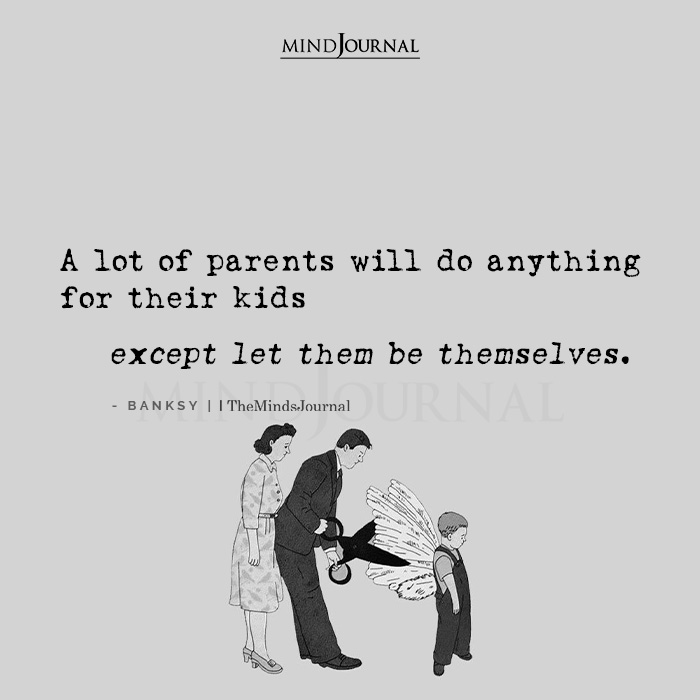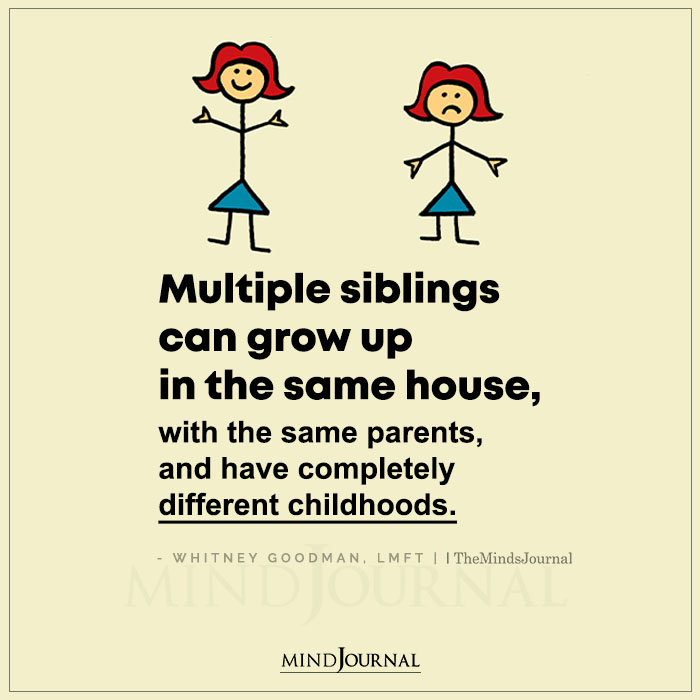Are you the “golden child” in your family? Maybe you were the one who always received the most attention, praise, and resources from your parents. If so, you may have experienced what is known as “golden child syndrome.” But what is golden child syndrome, really?
Have you ever felt like your siblings or peers were jealous of the attention you received from your parents? How did this make you feel? Have you noticed any negative effects of being the golden child, such as a lack of empathy or entitlement? These are just a few of the questions we’ll explore in this article.
So, whether you’re the golden child, the neglected sibling, or just curious about the golden child syndrome meaning, keep reading to learn more.
Let’s find out first what is golden child syndrome.
Related: Golden Child Syndrome: 6 Characteristics of a Golden Child
What Is Golden Child Syndrome?
Golden child syndrome is a term used to describe a phenomenon that occurs in some families where one child is favored over their siblings by parents.
The favored child is often showered with attention, praise, and resources, while their siblings may be overlooked or neglected. This can lead to feelings of resentment, jealousy, and competition among siblings.
For example, you’ll receive more financial support or be given special privileges, such as being exempt from chores or rules that apply to your siblings. You will be praised excessively for your achievements, while your siblings’ accomplishments are ignored or downplayed.
Additionally, your parents might also have unrealistic expectations of you, placing undue pressure on you to succeed and achieve at a level that may not be sustainable or healthy.
This might lead to a sense of entitlement in you, as the favored child, as well as a lack of empathy and understanding for your siblings’ struggles.
Now that we know what is golden child syndrome, let’s find out the signs of a golden child.

What Is Golden Child Syndrome? 10 Signs Of A Golden Child
1. You are always given special treatment by your parents.
Your parents shower excessive attention, praise, and material goods on you, while your siblings are neglected or overlooked. Your parents may also tolerate or ignore your misbehavior while holding your siblings to higher standards.
This can result in you feeling entitled and lacking empathy towards your siblings, who end up feeling resentful and jealous towards you.
Furthermore, this can end up hindering your development of independence and emotional maturity, as you have not been given the same opportunities to navigate difficult situations and make mistakes.
2. You find it hard to accept criticism.
You may struggle with accepting criticism due to the constant validation and praise you receive from your parents or caregivers. You are not used to being held accountable for your actions, leading to defensive or dismissive behavior when confronted with your shortcomings.
This lack of accountability can also cause you to develop arrogance, making it difficult for you to accept responsibility for your mistakes.
Additionally, you might also struggle with handling rejection or failure, as you have not been challenged to navigate these situations in the same way as your siblings. This can lead to emotional immaturity and difficulty coping with stress and adversity.
Related: Dysfunctional Family Roles: The 5 Child Roles In Dysfunctional Families
3. You see your siblings as your competition.
What is golden child syndrome and why is it a bad thing? This is one of the biggest reasons.
Golden Child Syndrome can lead to unhealthy competition and rivalry among you and your siblings. You as the favored child may view your siblings as competitors and feel threatened or resentful if you perceive your siblings as receiving attention or resources you believe you deserve.
This can lead to a breakdown in sibling relationships, as jealousy and resentment can create tension and conflict between siblings.
Also, competition can also make you feel entitled, since you may feel that you deserve special treatment or resources over your siblings. This can cause further tension and damage to family relationships, as you may find yourself struggling to recognize the value and worth of your siblings.
4. You end up being emotionally immature.
Golden Child Syndrome can hinder your emotional development, leading to emotional immaturity and difficulty regulating emotions. You may have been shielded from difficult situations or spared from consequences, leading to a lack of resilience and coping skills.
As a result, you struggle to manage stress or anxiety and may act out or become defensive when faced with criticism or conflict. This emotional immaturity can strain relationships, as you struggle to communicate effectively or empathize with others.
Moreover, emotional immaturity can also foster a sense of entitlement, making it difficult for you to recognize the needs and feelings of others.
5. You suffer from low self-esteem.
What is golden child syndrome? This, right here, because being a golden child doesn’t always mean good things!
It can lead to poor self-esteem in you, despite the special treatment. You feel immense pressure to live up to your parent’s expectations, which can be exhausting and overwhelming. This pressure can lead to feelings of inadequacy, as you may feel like you can never measure up to your parents’ standards.
The special treatment you receive can also create a sense of loneliness or isolation, as you may feel like you are not loved for who you are, but rather for your achievements or actions. This can lead to a lack of self-worth and difficulty forming healthy relationships with others.

6. You suffer from a severe lack of independence.
One of the major signs of a golden child is that you have zero independence. Being a golden child can hinder the development of independence in the favored child, leading to difficulty in decision-making.
You were never given the same opportunities to make mistakes and learn from them as your siblings, leading to a lack of experience in handling challenging situations. As a result, you struggle with making decisions independently and may rely heavily on the guidance and approval of your parents.
This lack of independence can have lasting effects on your ability to navigate the world on your own, leading to difficulty in forming healthy relationships and making decisions in your personal and professional lives.
Related: The Narcissist’s Family: The Roles Cast by the Narcissist
7. You are always showered with excessive praise.
Safe to say, this is one of the biggest signs of a golden child.
Your parents always shower a lot of praise and compliments on you which can have lasting effects on your sense of self-worth and ability to recognize your own achievements.
You receive constant validation and praise from your parents, regardless of the accomplishment or behavior’s significance, leading to you feeling egoistic and arrogant and having unrealistic expectations of success.
This excessive praise can also create a distorted sense of reality, as you may struggle to differentiate between genuine achievements and undeserved praise. As a result, you struggle with low self-esteem when you are not receiving constant praise and validation, leading to a sense of inadequacy and difficulty forming healthy relationships with others.
8. You bear the burden of really high expectations from your parents.
Being given preferential treatment can lead to you being held to higher expectations than your siblings, which can have lasting effects on your sense of self-worth and ability to navigate the world.
Your parents will push you to excel academically, athletically, or socially, expecting you to perform at a level that may be unrealistic or unattainable. This pressure can lead to a sense of inadequacy and anxiety in you, as you may feel like you are not living up to your parent’s expectations.
Additionally, you may also feel like you have no control over your own life, as your parents dictate your every move in an attempt to maintain your status as the favored child.
9. You have an unhealthy relationship with your siblings.
This is one of the major signs of a golden child.
Golden child syndrome can have detrimental effects on sibling relationships. It often leads to unhealthy dynamics, including resentment, jealousy, and even estrangement. These negative emotions can fester over time and create a rift between siblings that is difficult to repair.
You may grow up feeling entitled and self-centered, leading to an imbalanced power dynamic within the family. This can cause additional tension and resentment among you and your siblings, further deteriorating your relationship with them.

10. You feel a lack of empathy for your siblings.
When parents favor one child over their other children, it can have a significant impact on the favored child’s ability to empathize with their siblings. The lack of empathy towards your siblings can create a rift in your relationships, as you may not understand or care about your siblings’ struggles or feelings.
This lack of empathy can be damaging to both you and your siblings. You may grow up feeling inconsiderate, insensitive, and self-centered, leading to difficulties in forming meaningful relationships outside the family.
Meanwhile, your neglected siblings may develop feelings of resentment and low self-esteem, which can negatively impact their mental health.
Related: The Sons Of Narcissistic Mothers And The Damage They Endure
Bottomline
The golden child syndrome can have significant long-term impacts on children’s mental health, relationships, and overall well-being. Parents must recognize the issue and take steps to address it.
This includes treating all children equally, fostering positive sibling relationships, avoiding negative labels, and seeking professional help if necessary. It’s essential to create an environment where all children feel loved, supported, and valued for their unique qualities and strengths.
By doing so, parents can prevent long-lasting resentment, jealousy, and even estrangement between siblings. Ultimately, addressing the golden child syndrome requires a commitment to promoting healthy communication, empathy, and understanding within the family.
It is a challenging but necessary process that can lead to healthier, happier, and more fulfilling family relationships.
So, what do you think about the golden child syndrome meaning and the signs of a golden child? Let us know your thoughts in the comments down below!
Frequently Asked Questions (FAQs)
Is golden child syndrome real?
Golden child syndrome is a term used to describe the phenomenon where one child in a family is favored over the others, often leading to feelings of resentment and inadequacy among the other siblings. While it is not an official diagnosis, it has been recognized as a real issue in some families.
Is golden child syndrome a mental illness?
Even though golden child syndrome is a real issue for many families, it is not considered to be a mental illness nor is it a diagnosable mental disorder.
What causes golden child syndrome?
Golden child syndrome can be caused by a variety of factors, including parental favoritism, the child’s personality traits, and the family’s cultural or religious values. It may also be a result of the parents trying to compensate for their own perceived shortcomings or unmet needs through their children.











Leave a Reply